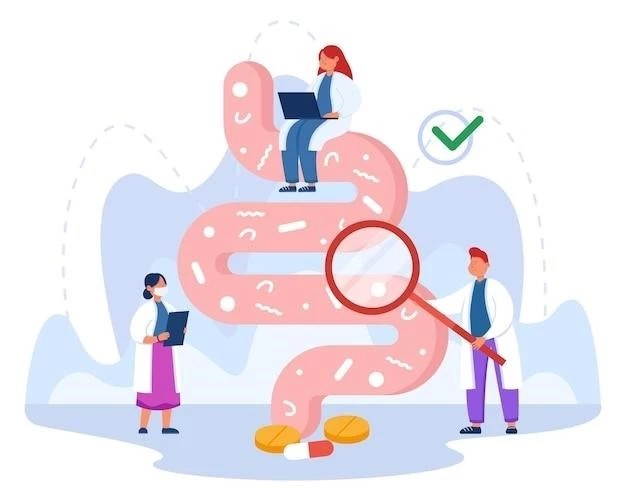Overview of Small Intestinal Bacterial Overgrowth (SIBO)
SIBO, or Small Intestinal Bacterial Overgrowth, is a disorder where certain intestinal bacteria grow excessively in the small intestine, leading to diarrhea and malabsorption of nutrients. It can be caused by various conditions like surgery or diabetes.
Definition and Causes
Small Intestinal Bacterial Overgrowth (SIBO) is a condition characterized by an abnormal increase in the number of bacteria in the small intestine, causing various gastrointestinal symptoms such as bloating, diarrhea, and malabsorption of nutrients. SIBO is often triggered by factors that disrupt the normal movement or balance of intestinal contents, such as surgery, diabetes, or autoimmune diseases. These disruptions allow bacteria to proliferate in the small intestine, leading to the typical symptoms associated with SIBO. Proper diagnosis and understanding of the underlying causes are crucial for effective management of SIBO.
Symptoms and Diagnosis
Small Intestinal Bacterial Overgrowth (SIBO) presents with symptoms such as bloating, abdominal discomfort, diarrhea, and nutrient deficiencies. Diagnosis of SIBO involves identifying these symptoms, conducting specific tests like breath tests or intestinal fluid cultures to confirm bacterial overgrowth in the small intestine. Proper diagnosis is essential for effective treatment planning and management of SIBO cases.
Prevalence and Controversies Surrounding SIBO
Small Intestinal Bacterial Overgrowth (SIBO) is a recognized cause of digestive issues, with prevalence estimates ranging from 2.5% to 22%. There is ongoing debate about its definition and true prevalence, despite increasing recognition as a significant gastrointestinal disorder.
Increase in Diagnosis and Implications
Small Intestinal Bacterial Overgrowth (SIBO) is increasingly diagnosed with modern testing methods like hydrogen breath tests, allowing for better recognition of the condition. This rise in diagnoses has significant implications for understanding and managing gastrointestinal disorders, prompting further research and therapeutic advancements in the field.
Forms of SIBO and Sampling Techniques
Small Intestinal Bacterial Overgrowth (SIBO) can manifest in two forms⁚ one dominated by oral bacteria (SIOBO) and the other by coliform bacteria. Innovative sampling techniques and advanced omics approaches are being developed to enhance the understanding of these forms, paving the way for more comprehensive diagnostic and therapeutic strategies.
Medical Perspectives on SIBO
Small Intestinal Bacterial Overgrowth (SIBO) is a recognized disorder characterized by an abnormal increase in bacteria in the small intestine. Diagnosis criteria involve specific testing methods, and treatment options include antibiotics and dietary changes.
Diagnosis Criteria and Testing Methods
Diagnosis of Small Intestinal Bacterial Overgrowth (SIBO) involves specific criteria based on symptoms like abdominal discomfort and bloating. Testing methods include breath tests and intestinal fluid cultures to confirm bacterial overgrowth in the small intestine, aiding in accurate diagnosis and treatment planning.
Treatment Options and Guidelines
Antibiotic therapy is a common approach to treating Small Intestinal Bacterial Overgrowth (SIBO), aiming to reduce the excess bacteria in the small intestine. Alongside antibiotics, dietary changes are often recommended to manage symptoms and restore gut health. Understanding and following treatment guidelines are essential for effective management of SIBO cases.

Relationship Between SIBO and Gut Health
Small Intestinal Bacterial Overgrowth (SIBO) is an excess growth of bacteria in the small intestine, typically affected by certain conditions. This condition can disrupt digestion and nutrient absorption, leading to various gastrointestinal symptoms and potential nutritional deficiencies.
Dysbiosis and Impact on Digestion
Small Intestinal Bacterial Overgrowth (SIBO) leads to dysbiosis, an imbalance in gut bacteria, affecting digestion. The excess bacteria in the small intestine disrupt the normal digestive process, leading to symptoms such as bloating, abdominal discomfort, and diarrhea. Understanding the impact of dysbiosis on digestion is essential in managing SIBO and restoring gut health.
Complications and Nutritional Deficiencies
Small Intestinal Bacterial Overgrowth (SIBO) can lead to various complications such as malabsorption of nutrients, unintentional weight loss, and nutritional deficiencies like vitamin B12 and iron. Managing these complications is crucial for improving overall health and well-being in individuals with SIBO.
Recognizing and Addressing SIBO Symptoms
SIBO symptoms include bloating, diarrhea, and malabsorption. Recognizing these signs early is crucial for prompt diagnosis and effective management.
Common Signs and Risk Factors
SIBO symptoms include bloating, abdominal discomfort, diarrhea, and malabsorption. Risk factors may include surgery, diabetes, and autoimmune diseases. Identifying these signs and factors is crucial for timely intervention and management of SIBO.
Testing, Diagnosis, and Differential Diagnosis
Small Intestinal Bacterial Overgrowth (SIBO) diagnosis involves breath tests and intestinal fluid cultures. Differential diagnosis aims to distinguish SIBO from other gastrointestinal conditions. Prompt testing and accurate diagnosis are essential for effective management.
Effective treatment of Small Intestinal Bacterial Overgrowth (SIBO) often involves antibiotic therapy and dietary changes. While antibiotics aim to reduce bacterial overgrowth, dietary modifications play a crucial role in managing symptoms and promoting gut health.
Treatment Approaches for Small Intestinal Bacterial Overgrowth
Antibiotic therapy is commonly used to target Small Intestinal Bacterial Overgrowth (SIBO) by reducing the excessive bacteria in the small intestine. Alongside antibiotics, dietary modifications play a significant role in managing symptoms and promoting overall gut health.
Dietary Changes and Supplement Interventions
Alongside antibiotic therapy, implementing dietary changes and supplement interventions play a crucial role in managing Small Intestinal Bacterial Overgrowth (SIBO). These changes aim to support gut health, alleviate symptoms, and restore the balance of intestinal flora for improved overall well-being.

Research and Future Directions in SIBO Management
Ongoing research in Small Intestinal Bacterial Overgrowth (SIBO) management focuses on innovative diagnostic methods and therapeutic strategies. Current studies aim to enhance understanding, refine diagnostic procedures, and develop novel treatments for improved outcomes in patients with SIBO.
Current Studies and Findings
Current studies on Small Intestinal Bacterial Overgrowth (SIBO) focus on innovative diagnostic methods and therapeutic strategies. Researchers aim to refine diagnostic procedures, enhance treatment outcomes, and develop novel interventions for improved management of SIBO.
Innovations in Diagnosis and Therapeutic Strategies
Based on the latest information available, Small Intestinal Bacterial Overgrowth (SIBO) is a condition characterized by an abnormal increase in intestinal bacteria, primarily in the small intestine. Common symptoms include bloating, abdominal discomfort, diarrhea, and malabsorption of nutrients. The diagnosis of SIBO typically involves breath tests and intestinal fluid cultures. Antibiotic therapy and dietary changes are the mainstay treatment approaches for managing SIBO effectively. It is crucial to recognize the signs and risk factors associated with SIBO for timely intervention and appropriate management. In the field of SIBO management, ongoing research focuses on innovative diagnostic methods and therapeutic strategies. Studies aim to improve diagnostic accuracy, refine treatment options, and enhance outcomes for individuals with SIBO.
